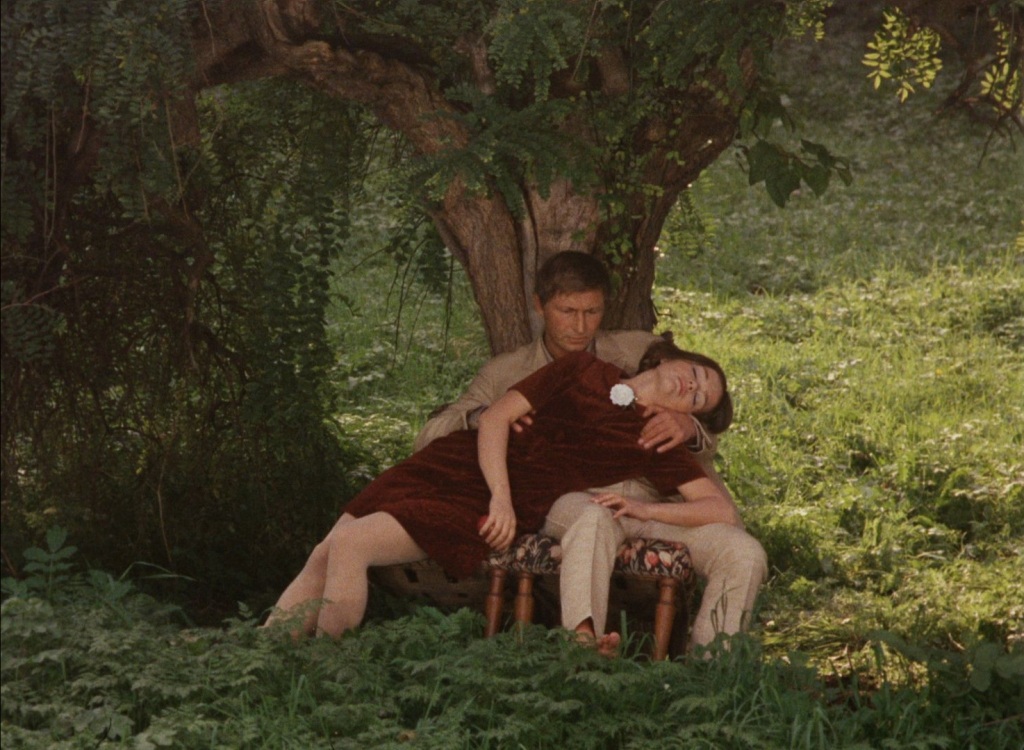
When it comes to the avant garde as long as it looks good, I don’t care if it’s incomprehensible. Not that I really think Czech director Věra Chytilová’s Fruit Of Paradise (1970) is incomprehensible. I have seen Chytilová’s most famous film, Daisies, twice in my life and enjoyed it. In the first ten minutes of Fruit Of Paradise, I settled myself in for the type of movie it was, remembering Daisies and the experimental approach to editing, the intentional naivety in the acting, and the nonsensical attitude to character and plot. A free for all, like abstract theatre, or silent cinema play-acting. A film like Fruit Of Paradise feels both liberating and a little bit frustrating. That it’s pushing past the expected constraints of narrative conventional cinema, but it’s also unmoored and that often I’m watching something and thinking “What the hell does this mean?” Then again, as I said, Fruit Of Paradise looks good, and is visually arresting and ultimately playfully strange.
A retelling of the Garden Of Eden myth, placed within a health resort. A couple, Josef (Karel Novák) and Eva (Jitka Nováková), sit in a lush, green garden. An apple dropping down upon them. In the bushes, a man named Mr. Robert (Jan Schmid), wearing a red suit, observes them. Describing the story doesn’t feel the same as experiencing it, particularly how it follows Eva, played by Nováková as mischievous and child-like, who wanders around, flitting between Josef who is unfaithful and runs around with other female guests, and Mr. Robert who is possibly a serial killer of “blonde women.” Symbolism and cartoon antics wrestle with poetic flourishes. All throughout the music of Zdeněk Liška is a propulsive component, imbuing everything with a grand fervour.
I really loved Nováková’s performance and playful physicality. Cowritten by the costume designer, Ester Krumbachová, there is a wonderful visual dimension to what the characters wear, the interiors of the house they’re staying in, and the way the locations are depicted (from sandpit to the woods). While there is a reading about female agency within a patriarchal structure, exploring a few interviews with Chytilová points to deeper, more coded themes about authoritarianism. Fruit Of Paradise was filmed during the Soviet invasion of Czech, and the director’s criticisms and feelings are buried within the symbolism, to avoid censorship or worse from the authorities. The main connections are the use of red as a colour, Mr. Robert’s sinister dimensions and the focus on “the truth” by the very end.
I also watched a copy on YouTube which was missing the first ten minutes, an abstract and experimental ‘Garden of Eden’ sequence which is very striking and impressionistic. Something I had to track down later to experience. Ultimately, Fruit Of Paradise is a testament to the power of red clothing against green foliage. Recommended.